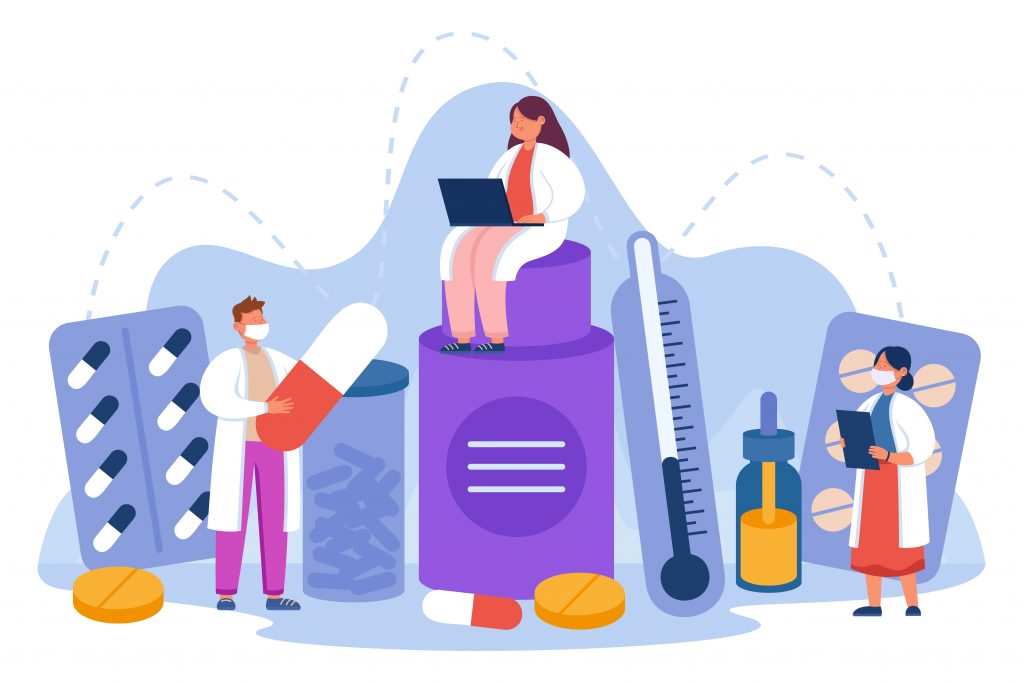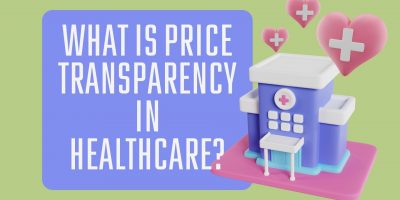
60+ Oral Health Statistics in 2024
From global impact to age-specific challenges – explore oral health statistics and insights to promote accessible dental care.

If two different people walk into a pharmacy with the same prescription medicine, they will walk out with two different bills for the same medicine.
Have you ever wondered how the price of your prescription medicine is determined?
Several stakeholders directly influence and are involved in determining the price of medicine, like the Pharmacy Benefit Managers, also known as PBMs. Although it is a rather complex supply chain, the end goal of PBMs is to reduce the price and provide cost savings for consumers.
Health insurance providers hire a PBM company to handle negotiations with drug manufacturers, process insurance claims, and manage formularies. Pharmacy benefit managers act as an intermediary between insurers and other members of the healthcare industry.
According to the American Pharmacists Association, “PBMs are primarily responsible for developing and maintaining the formulary, contracting with pharmacies, negotiating discounts and rebates with drug manufacturers, and processing and paying prescription drug claims.”

In the United States, there are more than 80 PBMs that offer a wide range of drug plan options to payers to meet the needs of the plan sponsors.
PBMs manage the pharmacy benefits for 266 million Americans, so they play a significant role in the healthcare system and determine the access and affordability of prescribed drugs.

PBMs compile a drug formulary for the employer.
The form is divided into several “tiers,” with preferred-brand tiers costing the least and non-preferred brand tiers, which cost more. The consumer must pay the total price out-of-pocket for any medicine that is not on the formulary.
PBMs also provide clients with audit rights, where they break
For many consumers, the insurance comes either from their employer or, in some cases, through individual insurance. Commonly, the employer hires PBMs to develop health plans, manage drug costs, and negotiate with pharmacies and drug manufacturers.
The employer agrees to pay a portion of the drug cost.
The drug goes on a co-pay tier based on what the employer expects to pay and the rebate the PBM negotiated. Different employers agree to different sponsor plans and prices; therefore, two employees from two companies may end up paying different prices for the same medicine.
PBMs negotiate to receive rebates from drug makers for keeping their drugs on the formulary. Different PBMs can negotiate different rebates. Moreover, they can also choose to return the rebate amount to the employer, keep some, or keep all of it. It is in the best interest of PBMs to negotiate better prices so they receive higher rebates.
After PBMs have negotiated with the drug manufacturers, wholesalers buy discounted drugs from drug manufacturers. Wholesalers then negotiate a price with pharmacies.
Pharmacies dispense medicine to consumers and collect co-pays from consumers. Consumers pay their portion of the price and the PBM reimburses the pharmacy. They then charge that the employer or insurance provider the reimbursement amount and an administrative fee.
Consumers pay premiums to their health insurance companies or employer. Consumers benefit the most by paying less for their prescribed medicine.
Pharmaceutical industry monopolies cause skyrocketing increases in drug prices. The price tags of specialty drugs have reached an all-time high, with some of them costing $500,000 a year.
What is concerning is that the price of commonly used medicine for diabetes, asthma, or high cholesterol has also risen. Without PBMs, consumers would have no representation or say in this complex healthcare ecosystem.
As the middleman, PBMs handle many aspects of the entire process to ensure no drug misuse and overlook patient safety. Their wide range of responsibilities includes:
Browse our curated list of vendors to find the best solution for your needs.
Subscribe to our newsletter for the latest trends, expert tips, and workplace insights!

From global impact to age-specific challenges – explore oral health statistics and insights to promote accessible dental care.

If two different people with the same prescription medicine get two different bills for the same medicine, it makes you wonder – how is the price of the prescription medicine determined?

Delve into the importance and challenges of price transparency, exploring its crucial significance for patients, providers, and the overarching healthcare system.

Discover 50+ essential infertility statistics and get valuable insights into this prevalent issue.
Shortlister Connect is a tool specifically designed to be utilized by the HR and Procurement/Sourcing teams within mid-size, large and jumbo employers. Shortlister Connect allows these teams to efficiently research & identify their optimal vendor partners, track existing vendor relationships & performance and “connect” with other employers to share successes and vendor experiences.
If you are not on the HR or Procurement/Sourcing team within an employer with over 200 employees, you will not be granted access to Connect. Examples of individuals that would not be granted access include, but are not limited to: vendors, students, practitioners, researchers, other non-employers or anyone that is unwilling to identify themselves will not pass our vetting criteria. If you are a consultant, Shortlister offers a specialized product for consultants, called Shortlister Select. You can email Tom Ciccotti at tciccotti@myshortlister.com to learn more about Shortlister Select.
***Shortlister retains the exclusive right to grant or deny access to any party to ensure the privacy of the vendors in our system.
Please login with your LinkedIn Credentials
Used by most of the top employee benefits consultants in the US, Shortlister is where you can find, research and select HR and benefits vendors for your clients.
Shortlister helps you reach your ideal prospects. Claim your free account to control your message and receive employer, consultant and health plan leads.